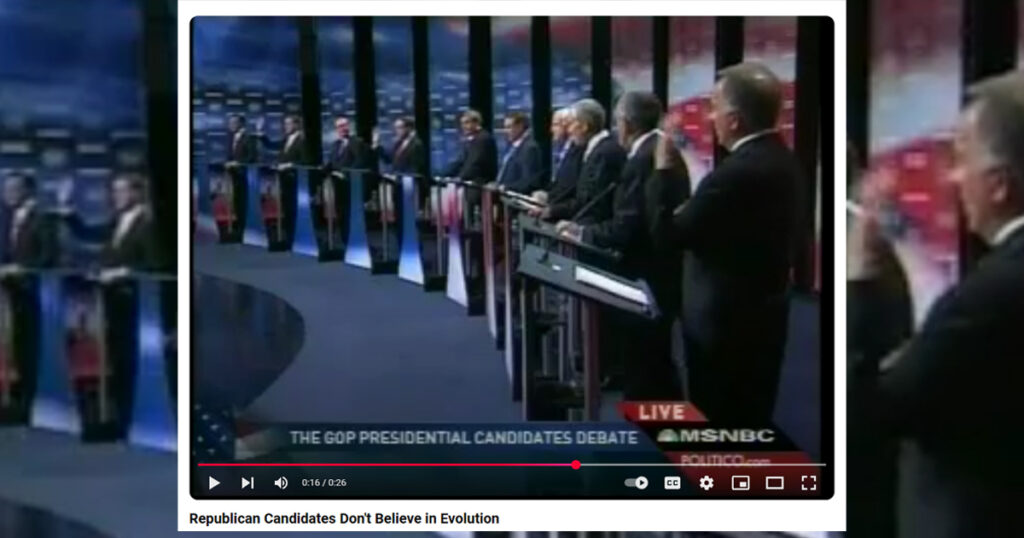On May 3, 2007, ten Republican candidates for president gathered at the Ronald Reagan Presidential Library for the first debate of the 2008 election cycle. The discussion covered expected conservative talking points—taxes, national security, and immigration—but one brief moment stood out: a simple yes-or-no question about evolution.
Moderator Chris Matthews asked the candidates, “Is there anybody on the stage who does not believe in evolution?”
Three hands went up.
Those hands belonged to Senator Sam Brownback, Governor Mike Huckabee, and Representative Tom Tancredo. The moment was fleeting, yet it became one of the most replayed clips of the debate, sparking intense discussion about the role of science in American politics.
The Fallout and Reactions
The reaction to the debate moment was swift. Scientists and secular commentators criticized the three candidates for rejecting a well-established scientific theory. The New York Times ran a critical editorial, and the clip was widely shared on social media, further amplifying the debate.
But for Brownback, Huckabee, and Tancredo, the raised hands played well with segments of their base. Huckabee, in particular, leveraged his faith-based appeal to build momentum in Iowa, where he won the caucuses. His response afterward was telling:
“I believe God created the heavens and the earth. I wasn’t there when he did it, so how he did it, I don’t know.”
This response attempted to walk a fine line—acknowledging religious belief while sidestepping outright rejection of science.
A Defining Moment in GOP Politics
The 2007 debate moment foreshadowed deeper divisions in the Republican Party over science and expertise. In the years since, similar debates have emerged over climate change, public health, and vaccine skepticism. What was once a hand-raising moment in a primary debate became a harbinger of broader tensions between the party’s intellectual conservatives and its populist, faith-driven base.
Today, looking back, that moment wasn’t just about evolution. It was about how the Republican Party would navigate the ever-growing divide between science and ideology in the 21st century.
